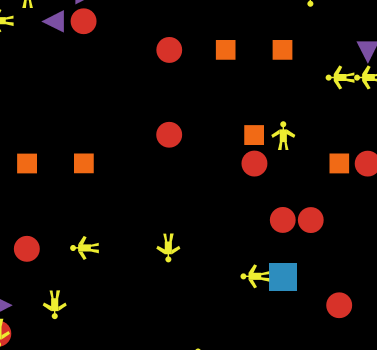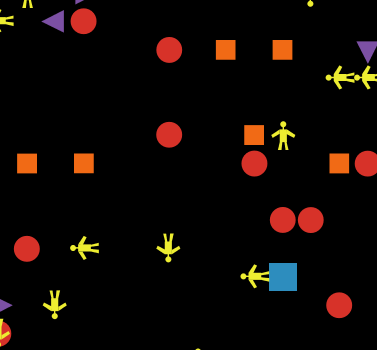The Garbage Can Model of Organizational Choice (3.1.1)
The Garbage Can Model of Organizational Choice is a fundamental model of organizational decision-making originally proposed by J.D. Cohen, J.G. March and J.P. Olsen in 1972. In the 2000s, G. Fioretti and A. Lomi presented a NetLogo agent-based interpretation of this model. This code is the NetLogo 6.1.1 updated version of the Fioretti-Lomi model.

Release Notes
This is an updated version of the code that has been used in the cited publications by Fioretti and Lomi.
Associated Publications
G. Fioretti and A. Lomi (2008) An Agent-Based Representation of the Garbage Can Model of Organizational Choice. Journal of Artificial Societies and Social Simulation, 11 (1).
G. Fioretti and A. Lomi (2008) The Garbage Can Model of Organizational Choice: An Agent-Based Reconstruction. Simulation Modelling Practice and Theory, 16 (2): 192-217. DOI: 10.1016/j.simpat.2007.11.010.
G. Fioretti and A. Lomi (2010) Passing the Buck in the Garbage Can Model of Organizational Choice (with A. Lomi). Computational and Mathematical Organization Theory, 16 (2): 113-143.
The Garbage Can Model of Organizational Choice 3.1.1
Submitted by
Guido Fioretti
Published Apr 23, 2020
Last modified Dec 05, 2024
The Garbage Can Model of Organizational Choice is a fundamental model of organizational decision-making originally proposed by J.D. Cohen, J.G. March and J.P. Olsen in 1972. In the 2000s, G. Fioretti and A. Lomi presented a NetLogo agent-based interpretation of this model. This code is the NetLogo 6.1.1 updated version of the Fioretti-Lomi model.
Release Notes
This is an updated version of the code that has been used in the cited publications by Fioretti and Lomi.

